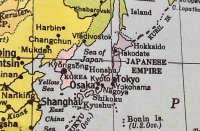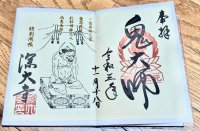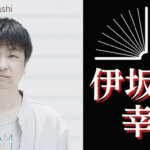March is Women’s History Month, the perfect time to hit play on any one of these amazing songs made for, by, or about Asian women. But please note: this is in no way the definitive list; it’s just a jumping-off point.
Lim Kim
Back in 2015, Lim Kim’s “Awoo” was named one of Billboard’s best K-pop songs of the year. But after parting ways with South Korean company Mystic Entertainment, now a subsidiary of K-pop megacompany SM Entertainment, in 2016, following the release of several popular albums and singles, Kim spent time working on the brand of music she wanted to put out to the world.
Her latest release, Generasian, is nothing like what listeners expected the singer to return to.
A declaration of her return, it was a dramatic move, and “I need to change up this game/ Don’t identify self in the male gaze/ I’m raising my voice to be heard/ Building my world,” she proclaims on “Sal-Ki.” “Decolonize from weakness/ Overpower their system,” she later says.
“Yellow” is an ode to pan-Asian cultures, and fittingly the music video draws on—and her lyrics reference a variety of identities and languages, looking to reclaim them for Asian people and nobody else.
Her new music blends her interpretation of modern day womanhood with her determined attempt to tear down Orientalist stereotypes and raise attention to how Asian peoples and countries are still overlooked in the west. A major theme that appears throughout is how Asian women have historically been depicted as docile and submissive, and in the music video for “Yellow” she performs the fierce lyrics while reclaiming fashion and traditional aesthetics associated with those stereotypes. “I’m the queen from the east,” she asserts, later adding that she’s the “Queen of east and the west” fighting to “break domes of male dominance.”
“So many pop stars actually use Asian concepts with their music or visuals but we don’t actually use that in our own way. So I was really curious about that actually. They love Japanese culture, Japanese looks, and K-pop and everything. So I just wanted to make fun of those perspectives, and I wanted to use that in our way too.”
Kim says her new music is full of rage aimed as an expression of her feelings, and writing her songs has helped her channel emotional turmoil. “I think after expressing your own feelings, you get a calm feeling,” she told Billboard about her songwriting process.
Read more on: https://www.billboard.com/articles/columns/pop/8543891/lim-kim-generasian-k-pop-interview
NIKI
A few songs into her set at the Head In The Clouds Festival in early August last year, Niki Zefanya, who goes by her stage name NIKI, took moment to address the 10,000-plus people gathered in Los Angeles’ Historic State Park. “I just want to say, as an Asian female, I do not take this day and this stage for granted. My hope is that above everything else today, that you feel heard, you feel understood, but most of all that you feel represented.”
Following in the footsteps of fellow Jakarta native Rich Brian (formerly Rich Chigga), R&B singer Nicole Zefanya, the female face of record label 88rising, is using her rising profile to break through the glass ceiling.
Growing up in Indonesia, singer-producer Nicole Zefanya never imagined it would be possible to have a music career in the United States. “I always had the mindset I wasn’t going to make it because I’m Asian – and no Asians ever make it,” she says in an interview.
But the impossible happened—today the 19-year-old, who performs under the name Niki, finds herself living in Los Angeles and serving as the female face of 88rising, the media company that also manages breakthrough Asian hip-hop acts such as Rich Brian (formerly known as Rich Chigga), Higher Brothers, Keith Ape and Joji.
When asked what she would like to see going forward with more Asian artists in the Western music industry, she said, “I just want Asians to be proud that they’re Asian because Asians have just been so underrepresented and it’s been a very unspoken, untouched territory. I just want kids to be proud. Honestly, that’s it. And I want to see more Asians on-screen, and Asians in entertainment. I want to see an Asian win a Grammy. Hopefully [it’s] one of us.”
Rina Sawayama
The London-based singer-songwriter, Rina Sawayama was born in Japan and emigrated to England with her family when she was five years old. During her teenage years, she discovered her love of music and academics, the latter leading to a place at Cambridge University where she also began to notice the cultural differences and ostracization amongst different races. These experiences allowed Rina to carve out her own identity, entwining her culture with her western life, evolving into an artist who defines her own unique style of pop.
This month, she shared the electrifying new video for ‘Comme Des Garçons (Like The Boys)’. The slick, 90s-inspired clip sees Rina absolutely owning it, channeling a sense of “masculine” confidence and reveling in a surreal, mind-bending world of bright colors and fashion iconograph.
Speaking about the inspiration behind the video, she said in an interview with DIY: “Male confidence can quite often be a performance – in the media, in the workplace, in movies, in music and that’s what I wanted to explore with this video with Eddie and Ben. We are entering a secret and surreal lab where this masculine figure is being scanned and studied, then going on this wild journey through different versions of myself. We wanted to make a music video that’s got humour, movement and is essentially a fashion film that combined the visual worlds of Hype Williams, Hiroyuki Nakano, and Boris Vallejo.”
Beabadoobee
London-based teen Bea Kristi (aka Beabadoobee) has taken the world by storm with her intimate love songs. Her latest EP Loveworm was inspired by a rough patch with her boyfriend Soren. But writing about love is an integral part of Filipino culture—she’s just giving back what she’s absorbed her whole life.
“I grew up on love songs. I grew up singing at the karaoke bar, watching my mom sing that one really famous Filipino love song on repeat. It’s just in my nature to talk about love,” she said in an interview with COMPLEX.
Although she doesn’t draw directly from traditional Filipino influences, shefound that, lately, hints of OPM (Original Pilipino Music) have been showing up in her work. She never sought out Filipino artists on her own—Bea went the angsty-teen (One Direction to Green Day to Sonic Youth route0 but it seems like the subconscious effect of her mom playing Itchyworms still shows.
Attending an all-girls, predominantly white Catholic school, she felt out of place—she was constantly pressured to wear white foundation and change her style to blend in. But she discovered the British band Lush and its Asian lead singer, Miki Berenyi, who first inspired her to dye her hair red. Now, Bea is more confident: “There are some days where I’m like damn, is this gonna work out? But at the same time, never do you see an Asian with blue hair that does music. So I guess I’ll take that spot before anyone else does!”
Lexie Liu
Before deciding to dedicate herself to being a solo artist in 2017, Lexie Liu nearly became a K-pop idol, even placing fourth on the TV talent show K-pop Star 5 in 2015; in the end, however, she turned her back on the restrictive idol system and returned to education, studying global business at New York City’s Fordham University – only to realize during her first semester that music was her true calling.
2019 was pivotal for her global breakthrough: she was the only female contestant left standing on the survival show, The Rap of China, she worked on campaigns with brands like Levi’s and Puma, and she signed with 88rising, the Asian-American label who has helped transition former viral sensations Joji and Rich Brian into bonafide music stars.
With the recent release of her debut EP, 2030, Liu has carved a space for herself by gathering all these strands and experiences into an intricate braid of sound that wears a hypnotic etherealness even when exploring the darker side of her psyche, and singles her out as a fresh, vital presence in music.
Performing in Mandarin and English, and as a singer and melodic rapper, Liu employs varying influences from trap (“Outta Time”, featuring Toronto rapper KILLY) to dancehall (“Strange Things”), but also brings pure pop into the mix on the chiming, bouncy “Love and Run”.















































